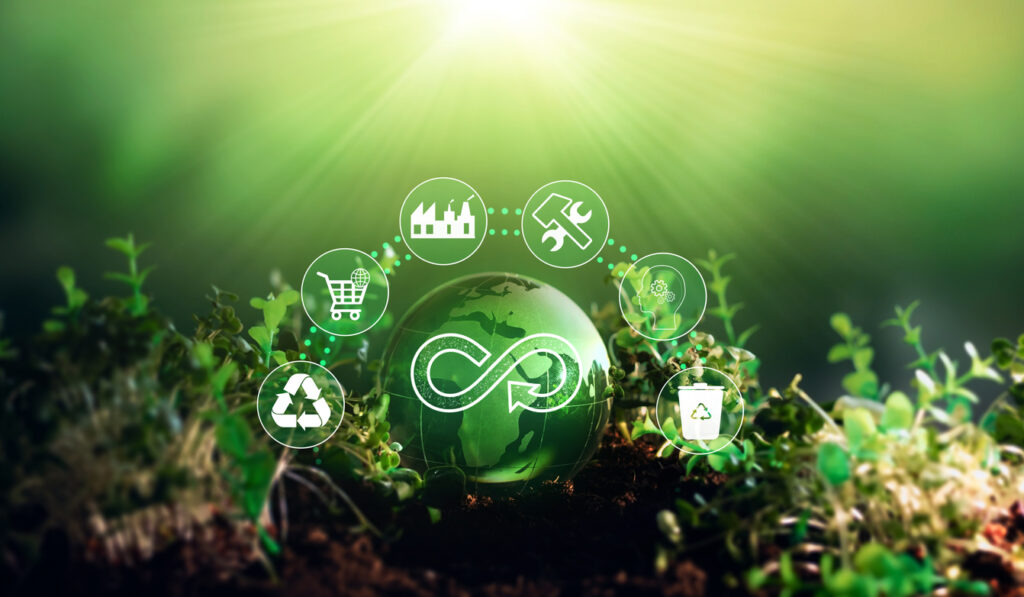As sustainability and social responsibility become an essential part of company operations, your ESG ranking is an increasingly important, widely-recognised business metric.
Most of us are familiar with the term Corporate Social Responsibility, (CSR) which incorporates an organisation’s sustainability policy. However, the term Environmental, Social, and Corporate Governance (ESG) is an objective measurement and classification of a company’s overall sustainability.
Prior to the framework’s conception in 2004, the environment and social responsibility were not considered to have any influence on an organisation’s bottom line or share value.
With the aim of quantifying the management of social, ethical and environmental risk, ESG modelling evaluates an organisation’s long-term performance against its three key pillars. The environment, sustainability, social impact and corporate governance are now key to an organisation’s profitability.
The framework helps to deliver a complete, rounded picture of corporate performance on ESG-related issues for stakeholders, investors, credit-risk agencies or those simply looking to do business with the company.
Why are ESG ratings important?
Extensive research has shown that highly rated ESG companies are far more likely to have greater long-term performance. As such, the ESG ratings offer an additional financial analysis and unique insight into a corporation’s potential moving forwards.
ESG investors, as an example, are able to assess the non-financial risks, future opportunities and stock market performance, along with their level of commitment to ESG best practice.
Whilst ratings are important for those financially associated with the business, it shouldn’t be forgotten that two-thirds of consumers are now actively seeking ethical brands with which to spend their money. Sustainability is no long a ‘nice thing to do’ – when it comes to business growth and competitiveness, it is simply essential.
Public companies are increasingly required by government institutions and the stock markets to declare their ESG ranking as part of their quarterly and annual financial reports.
However, the framework has not been without criticism for lack of transparency. Some scoring systems can vary, information can be taken from differing sources, reporting can be inaccurate and greenwashing can occur. Of course, the system is only reliable if it is data-driven, objective and regulated. As ESG becomes increasingly incorporated into mainstream financial reporting, in June 2022, the UK’s Financial Conduct Authority voiced its support for ESG rating regulation and is working with the Government so it can extend its authority to standardise ESG rankings.

What is an ESG rating? How are ESG scores calculated?
To gain a full understanding of ESG ratings and what is a good ESG score, it is important to understand how they are measured and scored.
Sustainability commitment and compliance performance is evaluated by third-party, specialist analysis agencies that use a rules-based, ESG score calculation methodology.
The most common is the MSCI ESG score ranking system, which measures the risk across 10 categories – these include climate change, renewable energy, pollution/waste, employee treatment and remuneration, legal compliance, cybersecurity and board diversity.
Under MSCI, key issues for each pillar are identified and 35 are selected, which are most relevant to the specific industry to ensure they are applicable to the company’s peers. These are weighted due to their relevance, timelines and impact; immediate risks with substantial implications have a heavier weighting.
Bridging the gap between company and public perception, agencies combine public information from media outlets, Governmental and regulatory bodies with documentation also provided by the corporation. MSCI assesses 80 different exposure and 270 governance metrics. * This generates a score between 0 to 10 for each parameter. It stands to reason that a low score means that the company is exposed to the risk, whereas a high score shows extensive effort to mitigate it; pledging to be net-zero emissions by 2030, for example.
Issue scores and weights are combined to create a rating between 1 – 10. This, in turn, relates to an overall grading system which is ranked between grades AAA and CCC; leader to laggard.
Considered to be ESG leaders, only 24% of companies achieve a AAA or an AA rating.
The Motley Fool.

How can I improve my ESG ranking with sustainable IT asset management?
Every business in every sector needs to deal with the disposition of its end-of-life IT assets, it is a necessary part of our technologically advanced society. Our businesses can not only operate sustainably, they can thrive by doing so.
By implementing a sustainable IT asset disposal policy and joining forces with a circular-minded, ITAD partner, your organisation will boost its ESG score.
Lifecycle management.
The economic depreciation of our IT assets has seen UK businesses dispose of their redundant IT equipment every 3-4 years, on average. Whilst these devices continue to hold significant value financially, therefore, lifecycle management services that extend the lifetime value of devices and provide a quantifiable metric when it comes to ESG reporting.
The key components of a laptop, for example, can be upgraded and refurbished for greater functionality. These can be redeployed to other employees or companies may choose to sell redundant IT assets through secure IT asset recommerce platforms, online. With warranties that match or even exceed the original manufacturers, when it comes to IT procurement, the purchase of refurbished devices can be highly cost-efficient.
Even when components are beyond repair or reuse, the zero-landfill policies held by the majority of IT asset disposal services help to prevent the e-waste crisis. Sustainable IT doesn’t just boost your ESG rating, it boosts your departmental budget as IT asset disposition services return the residual value of the assets to your organisation.
Circular ITAD services.
Social responsibility extends beyond the immediate boundary of your organisation. When looking to recruit a new employee or sign a new third-party supplier contract, it is essential that you affiliate with like-minded people or organisations; these should have the same ethical outlook, processes and commitment to sustainable operations. When it comes to your ranking, who your business associates are can make all the difference.
When it comes to your IT inventory and its disposition, choosing an environmentally friendly ITAD supplier with social impact and community projects at its core will demonstrate your commitment to ESG processes – helping you achieve a higher ranking.
Data erasure over device destruction.
Since the introduction of the strict EU & UK GDPR data destruction requirements, IT asset disposal companies have commonly reported an increase in requests for data shredding and degassing services. Unfortunately, this unsustainable destruction of devices over secure data erasure continues.
This is extremely wasteful when leading data destruction services provide a sustainable alternative using the advanced Blancco software. This secure IT asset disposal process generates an ITAD asset disposal accreditation certificate for each individual asset; guaranteeing your data security legal compliance with this ITAD Chain of Custody.
In 2022, tier1 Group’s customers purchased 110,000 renewed devices, saving 23,400,000 kg CO2e. This equates to 444,000 flights from London to Paris or 20,000 flights from London to New York.

The importance of data destruction over device demolition and building like-minded, ethical partnerships will ensure that UK businesses achieve a greater ESG rating; the business benefits of which are extensive.
Through quantifiable environmentally friendly ITAD, organisations will achieve better long-term performance, gain an enhanced reputation, attract investment, the best talent and see increased customer loyalty – and all whilst making substantial cost-savings to boot.
*The Motley Fool,
tier1 Group’s circular approach to IT asset management will help your organisation achieve a higher ESG ranking. Providing socially responsible and environmentally friendly ITAD, we promote the reuse, refurbishment and resale of products over recycling, wherever possible.
Our sustainable data wiping services guarantee your legal compliance with both the WEEE directive and data privacy laws, ensuring you don’t run into any future data governance challenges.
To find out more, contact our friendly teams on 0161 777 1000 (Manchester), 01621 484380 (Maldon) or visit www.tier1.com
Resources.
The Financial Conduct Authority, The Motley Fool, WiseTek, Corporate Finance Institute, Plant Switch, Fidelity, World Favor, MSCI, tier1



